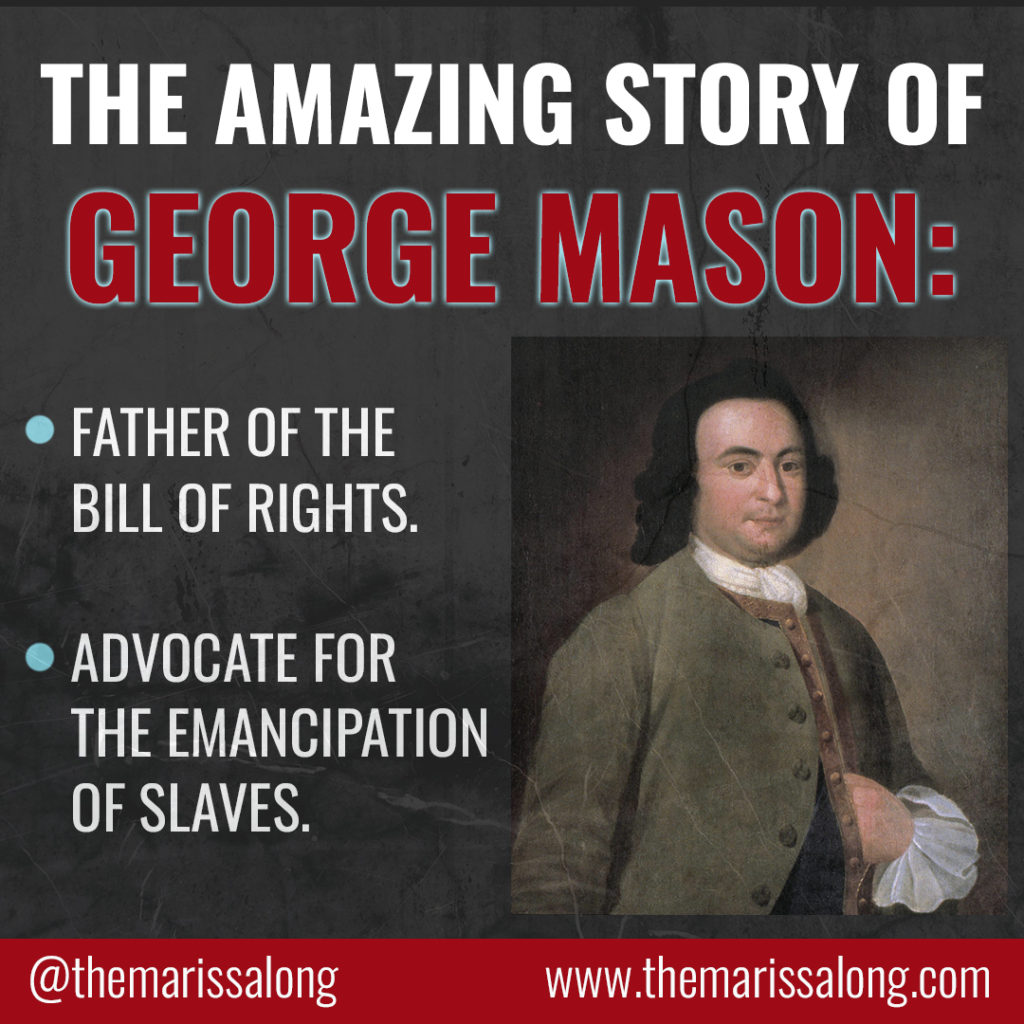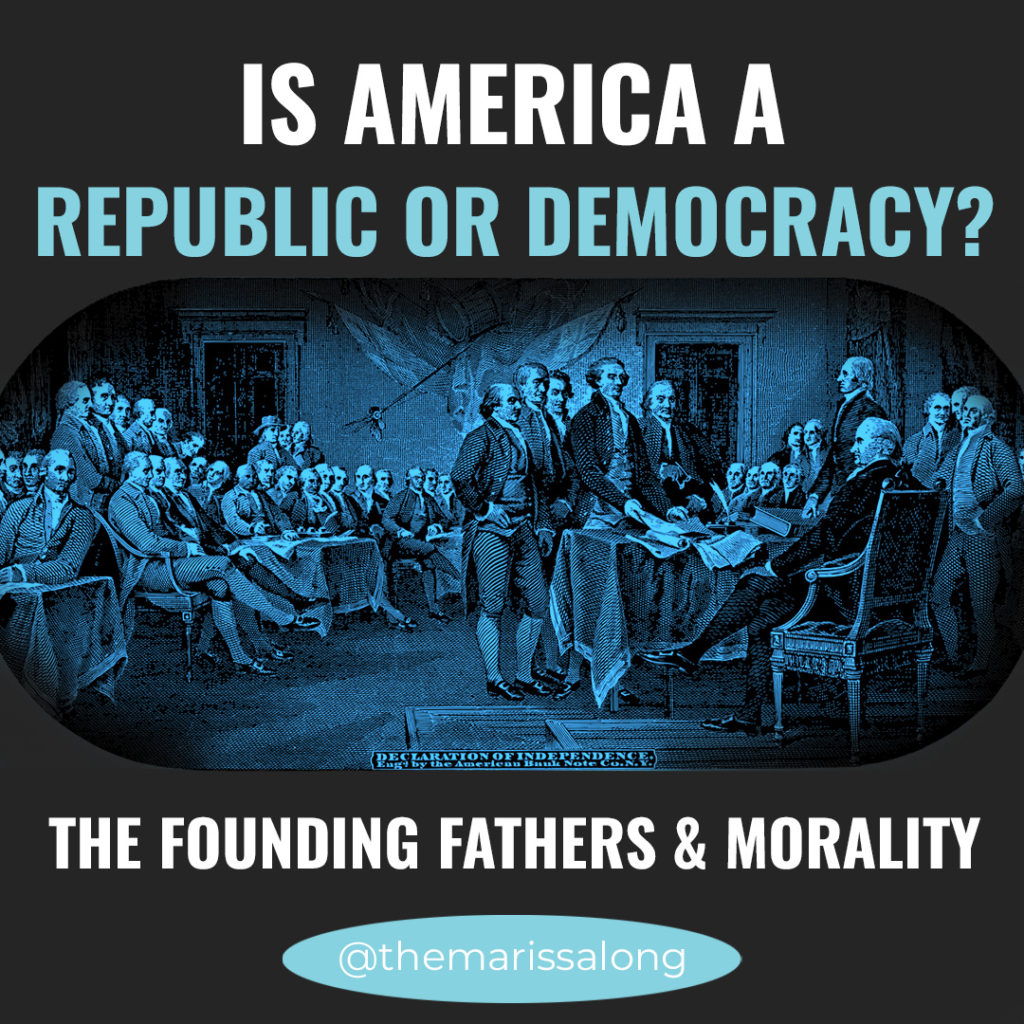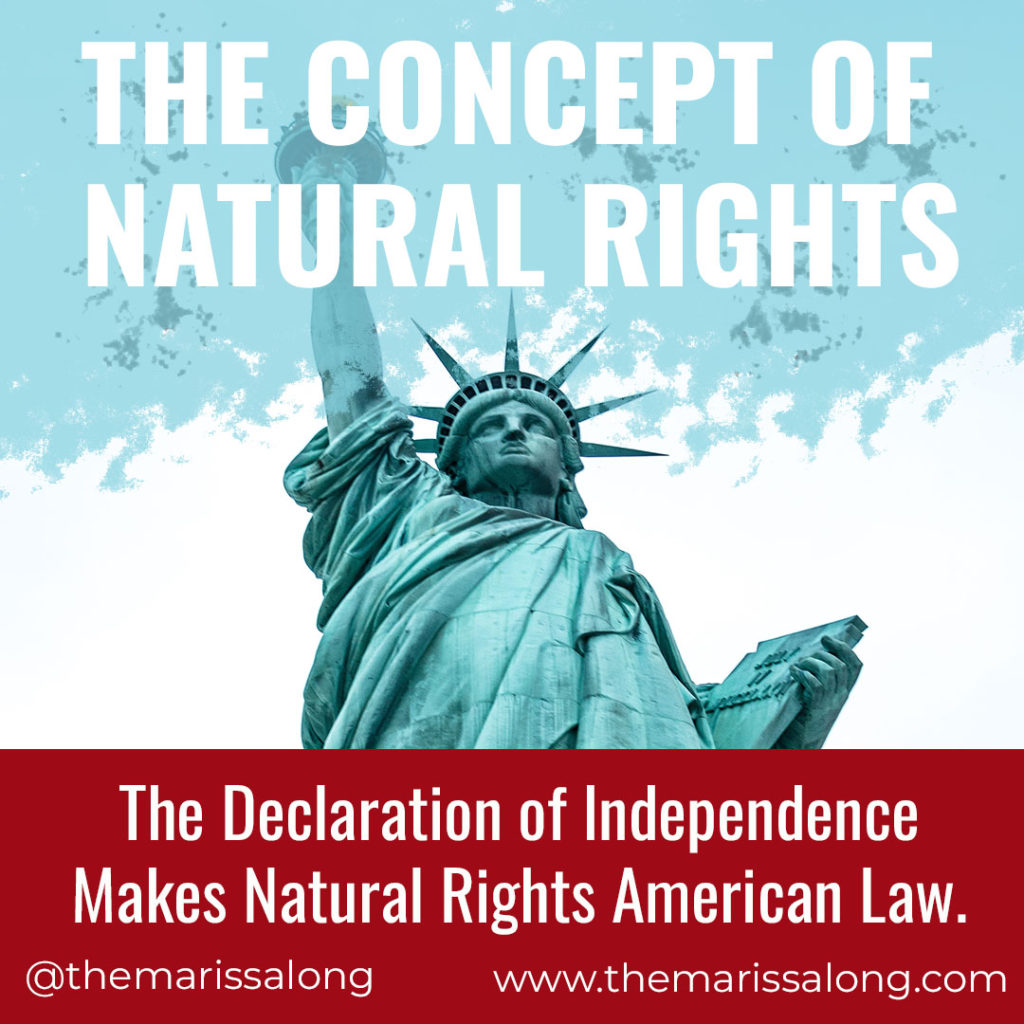The founders of America had one of THE most unique opportunities in history: the Founding Fathers were able to pick a republic vs. a democracy. They got to raise a “baby government” and shape it into whatever they wanted. They could have formed any type of government: an oligarchy, a monarchy, a democracy, a dictatorship, etc.
You might be thinking, “They made a democracy… America is a democracy!”
I hate to burst your bubble, but America is not a democracy. Contrary to popular belief and media, America is a republic.
Most people brush this off. “Big deal. Democracy. Republic. There’s not a big difference.”
Well, actually there is. The founders were uniquely suited to synthesize the most modern forms of government during the 1700s with aspects of ancient Israelite government, Aristotelian philosophy, and even English parliament.
Today, our modern attempts at labeling America a democracy seem narrow and shallow.
As Benjamin Franklin told a certain Mrs. Powell of Philadelphia right after the Constitutional Convention, America is “a republic, madam – if you can keep it” (Metaxas, p. 9).
So what is a republic? What is a democracy? What is the difference? And why did America’s Founding Fathers form a republic rather than a democracy?
Join the group of young conservatives on my email list, and stay in touch!
WHAT IS A DEMOCRACY?
Democracies and republics have this in common: the people are the driving force in government. Let’s take a look at an example of democracy.
In 500 BC in Athens, Greece, the Athenians established what historians consider to be a “pure democracy”. This required a small stretch of land, which Athens provided, and each person (i.e. the public) “voted on every law, with the majority having almost total control over rights and freedoms” (ThoughtCo).
In Federalist Paper No. 14, James Madison writes, “It [the difference] is that in a democracy, the people meet and exercise the government in person: in a republic, they assemble and administer it by their represnentatives and agents. A democracy, consequently, must be confined to a small spot. A republic may be extended over a large region.”
In a democracy, the authority behind the government rests in the majority. “A democracy is the rule by majority feeling (what the Founders described as a ‘mobocracy’)” (Wall Builders).
In other words, the majority rules in a democracy. Now you might be thinking that America operates that way, but we don’t. And here’s why.
WHAT IS A REPUBLIC?
A republic focuses on the individual person, not the majority group. A republic “operates for the protection of the individual against the majority when they get out of control.” (The Federalist Papers Organization). It focuses not just on what the largest percentage votes for – “a republic is rule by law” (Wall Builders).
RELATED: Ditch the Groupthink. It’s Anti-American
The American republic “offers protections from the instability, rashness, impetuosity, and social and political tyranny of democratic politics because it recognizes that the majority does not equal the whole of the community. Republicanism recognizes the valid contributions to the welfare of the community by non- and even counter- majoritarian parts of the community. […] republicanism protects the minority from unjust majorities and secures the conditions for the political and social freedoms that are the true goal of the American Revolution” (Heritage Foundation).
In other words, a republic protects the individual citizen from mob rule and maintains the morality required to establish concrete laws of the land.
RELATED: WHAT ARE NATURAL RIGHTS?
REPUBLIC VS. DEMOCRACY: WHAT’S THE DIFFERENCE?
Essentially, a republic is a representative democracy.
Alexander Hamilton wrote to Gouverneur Morris on May 19, 1777, “But a representative democracy, where the right of election is well secured and regulated & the exercise of the legislative, executive and judiciary authorities, is vested in select persons, chosen really and not nominally by the people, will in my opinion be most likely to be happy, regular and durable.”
A republic is two-sided: the governmental powers in a country “should be derived from the people, but […] those intrusted with it should be kept in dependence on the people, by a short duration of their appointments; and that even during this short period the trust should be placed not in a few, but a number of hands” (Heritage Foundation).
Every American knows that we elect state representatives and senators and send those people to Washington D.C. to handle legislation and governmental affairs. By doing this, each state is allowed to speak its opinion and influence legislation in D.C., regardless of the state’s size.
THE FOUNDING FATHERS, BIBLICAL MORALITY, AND THE AMERICAN REPUBLIC
The Founding Fathers didn’t just study John Locke, Montesquieu, and Thomas Hobbes. Most of the men who signed the Declaration of Independence and later ratified the Constitution were familiar with Christian principles, if not devoted Christians themselves.
It should not be a disputed fact, then, that “the transcendent values of Biblical natural law were the foundation of the American republic” (Wall Builders).
Why is this so important? Because relativism and law don’t work.
Because American law is based on Biblical principles of right and wrong, what was wrong in 1787 is still wrong today.
David Barton writes, “Consider the stability this provides: in our republic, murder will always be a crime, for it is always a crime according to the Word of God. However, in a democracy, if [the] majority of the people decide that murder is no longer a crime, murder will no longer be a crime (Wall Builders).
“America’s immutable principles of right and wrong were not based on the rapidly fluctuating feelings and emotions of the people but rather on what Montesquieu identified as the ‘principles that do not change’” (Wall Builders).
The Founding Fathers created one of the greatest governments the world has ever seen. The American Republic is unique and extraordinary, but compared to all the other forms of government, it requires the most care and guardianship.
John Adams warned us of the excruciating loss we would experience if we allow the republic to deteriorate and fall into the wrong hands. He wrote “that every man will do what is right in his own eyes and no man’s life or property or reputation or liberty will be secure, and every one of these will soon mold itself into a system of subordination of all the moral virtues and intellectual abilities, all the powers of wealth, beauty, wit, and science, to the wanton pleasures, the capricious will, and the execrable [abominable] cruelty of one or a very few.”

RELATED: THE AMAZING HISTORY OF GEORGE MASON: THE FATHER OF THE BILL OF RIGHTS
CONCLUSION
We have learned about republics, democracies, the difference between them, and how the Founding Fathers borrowed Biblical morality in creating the American Republic. So now it’s up to you. Do you want to keep the republic? Do you want to keep a government that values the opinion of each individual person? If so, it’s time to fight. It’s time to stand up against the tyrannical forces threatening the republic. It’s time to take our stand and hold the line.


